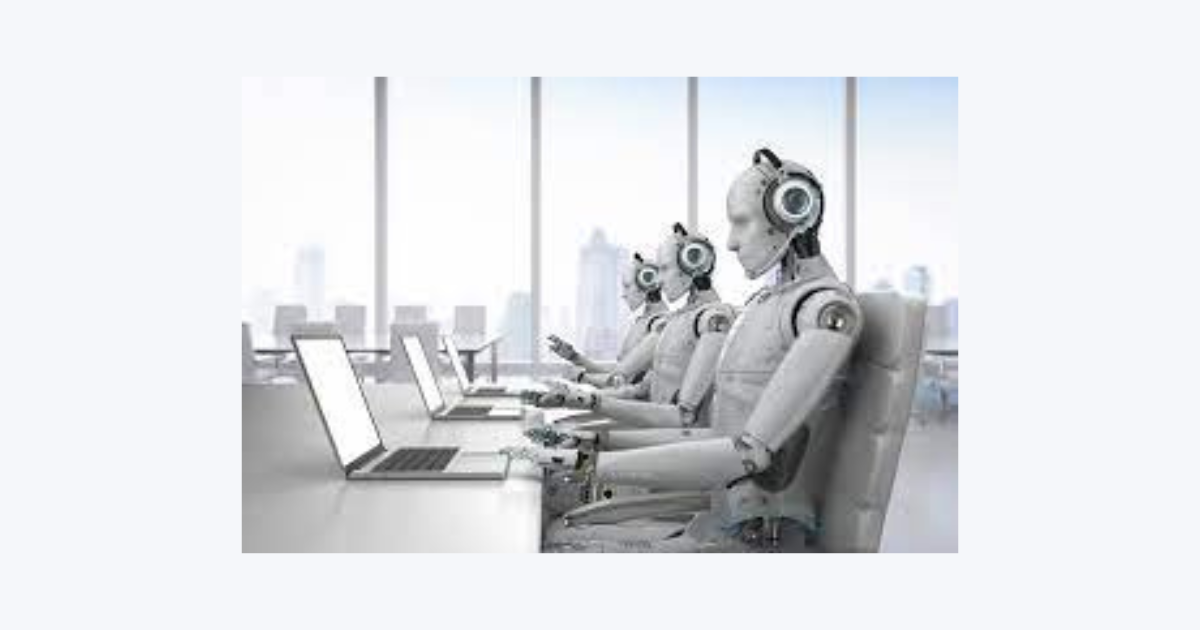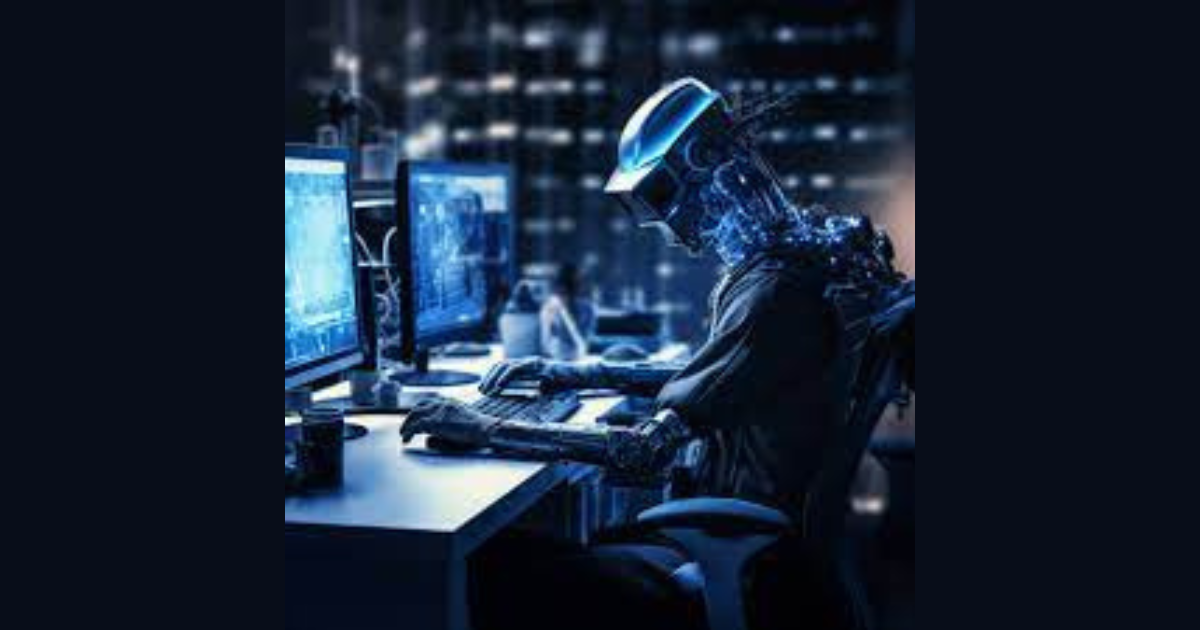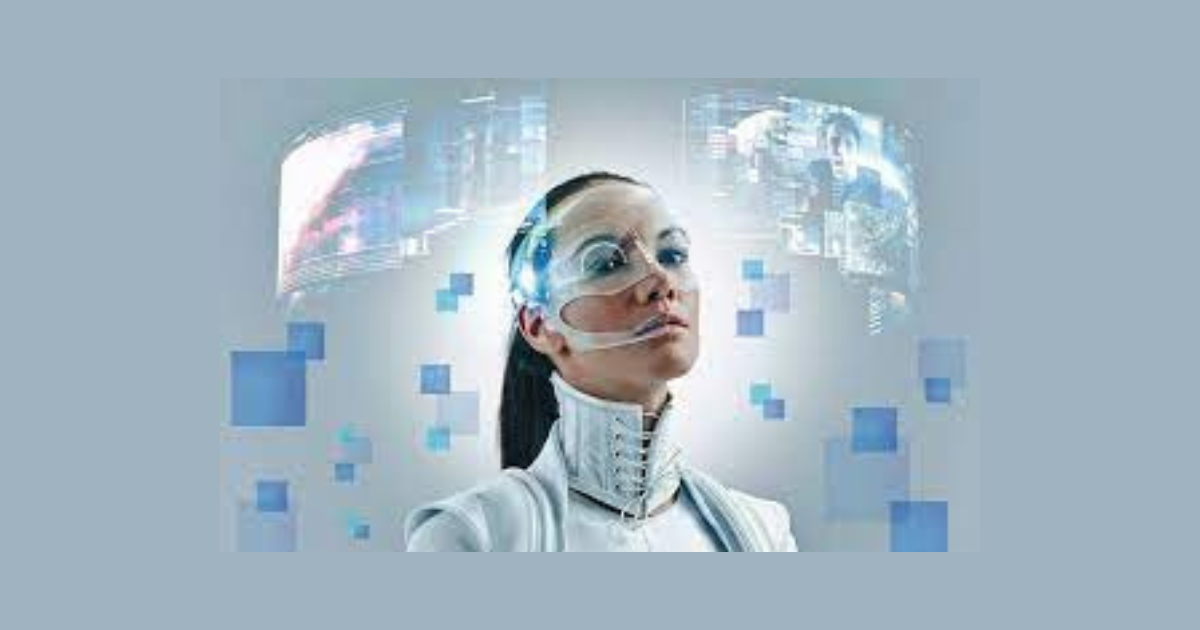Introduction
Artificial Intelligence (AI) has been a buzzword for several years now, promising to revolutionize industries, streamline processes, and make our lives more efficient. While AI brings about numerous benefits, it also raises concerns about the future of work. Many people worry that AI will replace human workers, leaving them jobless and uncertain about their future. In this article, we’ll explore the impact of AI on the job market and provide strategies on how you can prepare for an AI-powered future.
The Rise of AI and Automation

AI, machine learning, and automation have made significant advancements in recent years. These technologies are capable of performing tasks that were once exclusive to human workers. From chatbots handling customer service inquiries to self-driving trucks transporting goods, AI is becoming an integral part of various industries. As AI systems continue to evolve, they can handle increasingly complex tasks, which has led to concerns about job displacement.
Automation, in particular, has been a key driver of these concerns. As robots and AI systems become more capable, they can perform repetitive, labor-intensive tasks more efficiently and accurately than humans. This has the potential to reduce the demand for manual labor across multiple industries, which raises the question: Is AI coming for your job?
Job Displacement vs. Job Transformation
The fear of job displacement due to AI and automation is not unfounded. According to a report by the World Economic Forum, it is estimated that automation and AI could displace approximately 75 million jobs by 2025. However, it is crucial to understand that AI doesn’t just take jobs away; it can also transform them.
AI and automation can handle routine tasks, allowing human workers to focus on more creative and strategic responsibilities. This shift can lead to the creation of new job roles that involve working alongside AI or supervising AI systems. For example, a factory worker whose job may have been automated could transition into a role where they oversee and maintain the automated machinery. In this sense, AI can complement human skills rather than replacing them entirely.
Industries Most Vulnerable to AI Disruption

While AI has the potential to impact a wide range of industries, some are more vulnerable to disruption than others. The following industries are particularly susceptible to AI and automation:
- Manufacturing: Robotics and automation have revolutionized manufacturing, allowing companies to produce goods with minimal human intervention.
- Retail: AI-powered chatbots and self-checkout systems are increasingly being used in retail, reducing the need for human cashiers and customer service representatives.
- Transportation: Self-driving vehicles and drones are changing the landscape of transportation and logistics, potentially replacing human drivers and delivery personnel.
- Customer Service: AI chatbots and virtual assistants are taking over routine customer service tasks, such as answering frequently asked questions and processing returns.
- Healthcare: AI is being used for medical diagnosis, radiology, and drug discovery, which may affect jobs in healthcare support roles.
- Finance: Automated trading algorithms and AI-powered financial analysis tools are impacting jobs in the finance sector.
If you work in one of these industries, it’s important to be proactive in preparing for AI disruption.
Preparing for an AI-Powered Future
As the job market evolves in response to AI and automation, it’s essential to take steps to ensure that you remain relevant and valuable in your career. Here are some strategies to help you prepare for an AI-powered future:
1. Embrace Lifelong Learning
The pace of technological change is rapid, and it’s crucial to stay updated with the latest developments in your industry. Invest in continuous learning by taking courses, attending workshops, and earning relevant certifications. Many online platforms offer courses on AI and related subjects, making it easier than ever to upskill.
2. Develop Soft Skills
While AI can handle many technical tasks, it often lacks human qualities such as empathy, creativity, and emotional intelligence. Cultivate these soft skills, as they are increasingly valuable in the workplace. Jobs that require interpersonal communication, collaboration, and creativity are less susceptible to automation.
3. Collaborate with AI
Instead of viewing AI as a threat, consider it a tool that can enhance your work. Learn how to work alongside AI systems and harness their capabilities to improve your productivity. For example, data scientists collaborate with AI to analyze and interpret large datasets, making their work more efficient and insightful.
4. Specialize in AI
AI specialists are in high demand, and there’s a shortage of experts who can develop, maintain, and improve AI systems. Consider specializing in AI development, machine learning, or data science. This specialization can open up new job opportunities and make you an indispensable part of your organization.
5. Be Adaptable
The job market is evolving, and the ability to adapt to change is a valuable skill. Be open to new opportunities and career changes, and don’t be afraid to pivot if your current job is at risk of automation. The ability to adapt and learn quickly will serve you well in an AI-powered world.
6. Network and Build Relationships
Building a strong professional network can provide you with valuable insights and opportunities. Attend industry events, join online forums, and connect with professionals in your field. Networking can help you stay informed about industry trends and potential job openings.
7. Start a Side Project
If you have a passion or a business idea, consider starting a side project. This can be an excellent way to diversify your skills and income streams. AI and automation can also be used to streamline and enhance your side projects, making them more profitable.
8. Plan for Financial Security
In an uncertain job market, it’s wise to plan for financial security. Save and invest wisely, create an emergency fund, and consider multiple income streams. This financial stability can provide a safety net in case your job is disrupted by AI or automation.
The Future of Work
The impact of AI on the job market is not a one-size-fits-all scenario. While some jobs may be at risk of displacement, many opportunities will arise as a result of AI and automation. The key to success in this evolving landscape is adaptability, continuous learning, and a willingness to collaborate with AI systems.
AI is a tool that can enhance our abilities, but it cannot replace the qualities that make us uniquely human. Creativity, empathy, and complex problem-solving are skills that AI struggles to replicate. By honing these skills and staying ahead of the technological curve, you can not only secure your place in the workforce but also thrive in an AI-powered future.
Conclusion
In conclusion, the question of whether AI is coming for your job is not a simple yes or no. It is a nuanced and dynamic issue that requires individuals to take proactive steps to remain relevant and adaptable. With the right mindset and a commitment to lifelong learning, you can prepare for the future of work, where AI is a collaborator rather than a competitor.



